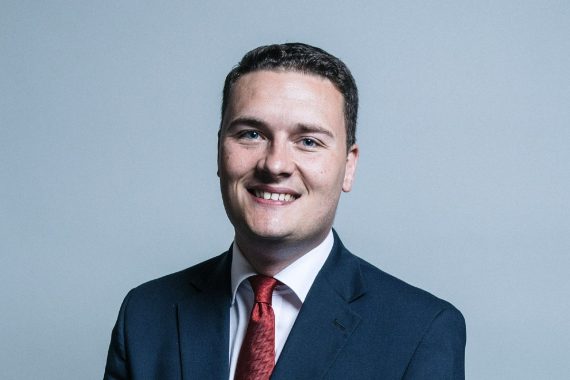Labour pledges to clear NHS elective backlog within five years

The Labour Party has pledged to eradicate elective waits over 18 weeks within five years, if they are elected on 4 July.
A Labour government would invest £1.3bn to reduce hospital waiting times, via a doubling of the number of scanners; paying NHS staff to work evenings and weekends; as well as funding private surgeries.
Without giving any further detail, the party also said it would ‘reform’ the NHS ‘to get more out of the service for what we put in’.
It quoted NHS trust data which suggested a ‘record’ 148,000 people died last year while waiting for NHS care. This was more than double 2017/18, when the figure stood at around 60,000 and higher than at the midst of the Covid pandemic (see box).
According to the NHS Constitution, patients should receive treatment within a maximum wait of 18 weeks but the party pointed out this target has been missed every month since February 2016.
Shadow health secretary Wes Streeting said: ‘Only Labour has a plan to get the NHS back on its feet, so it is there for us when we need it once again.
‘Our first step will deliver 40,000 extra appointments at evenings and weekends, paid for by clamping down on tax dodgers and closing non-dom loopholes.’
Sarah Woolnough, chief executive of leading health think-tank the King’s Fund, said: ‘Long waits for care have been brought down before, but it takes time. It wasn’t until 2008 that the last Labour government got waiting times within the target.
‘Clearing the backlog within five years would take real effort and focus and may mean other ambitions in health and care will be slower to realise.’
Although ‘offering weekend and evening appointments for planned treatment and outpatient clinics is a good idea’, scaling it up ‘will rely on having enough NHS staff to take on the extra shifts; not a given when so many report high levels of stress and burn out,’ she said.
And ‘achieving this ambition to eradicate the backlog within five years would almost certainly require a swift resolution to ongoing industrial action,’ she added.
‘Labour’s commitment to increase the number of CT and MRI scanners is welcome, but it is less clear what action the party would take to achieve its goal of increased efficiency in the health service.’
BMA chair Professor Philip Banfield said: ‘Investment is welcome, but it’s unclear how far £1.3bn will stretch given the scale of the task. It will take more than a few new scanners to deliver this promise, and much more engagement with, and recognition of, staff who are leaving the NHS due to poor pay, conditions and exhaustion.’
He also added that any ‘spare capacity’ in both private sector or evenings and weekends ‘relies on the same doctors already working in our NHS 24/7’.
‘Expecting them to spread themselves even more thinly won’t cut it now that goodwill has been so roundly eroded over the last few years.’
Professor Banfield said: ‘Importantly, Labour doesn’t say what it plans to do about senior doctors being prevented from taking on extra NHS shifts due to persistently punitive and complex pension taxation rules.
‘And there’s still no assurance that doctors wouldn’t be punished if a Labour government re-instates the pension lifetime allowance – risking an exodus of our most senior clinicians who are so critical to reducing waiting lists.’
To date, Labour has not been entirely clear on its plans for general practice if it comes into government.
Its suggestions have included a shake-up of GP services to create new ‘neighbourhood health centres’, seemingly resembling the old Darzi centres.
This followed an apparent U-turn from the shadow health secretary regarding the GP partnership model.
At the beginning of last year, he had said Labour would ‘tear up’ the ‘murky, opaque’ GP contract, while considering abolishing the GP partnership model in favour of a salaried service.
However in October Mr Streeting said his comments had been ‘misinterpreted’ and he does ‘value’ GP partners.
Labour’s elective waits data in full
An FOI request by the Labour Party to every NHS trust in England received 80 responses out of 169 acute and community trusts.
The total number of deaths from those who responded was 61,396 deaths, which when extrapolated out to all trusts would be 148,227 deaths.
In 2017/18 around 60,000 patients died while on NHS waiting lists, and around 38,000 in 2012/13.
An FOI from the Labour Party found that 117,000 patients died while on NHS waiting lists in 2021.
The number of patients waiting longer than 18 weeks today stands at 3.2 million, almost half of the total waiting list, with more than 300,000 patients having waited more than a year.
Source: Labour
Pulse July survey
Take our July 2025 survey to potentially win £1.000 worth of tokens

Related Articles
READERS' COMMENTS [3]
Please note, only GPs are permitted to add comments to articles













Is it April 1st again??
Sounds expensive!
Clueless